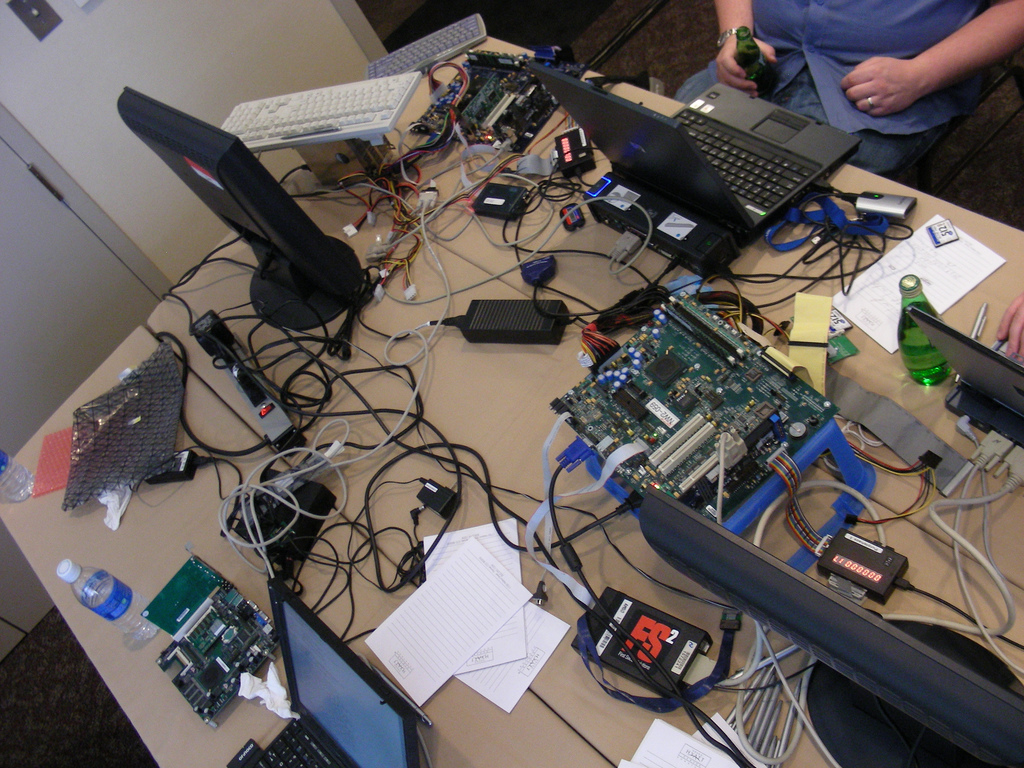Brian Krebs is a cyber security writer that recently exposed two Israeli teens who were running a company that was responsible for the majority of distributed denial of service or DDoS incidents throughout the year. Immediately following his report, his site krebsonsecurity.com was bombarded with the single largest DDoS attack in history, which caused it to crash for most of the week. Krebs and his website are back now, but the incident does paint a worrying future wherein journalists could be silenced so easily. More than that, the attack also forced Akamai Technologies Inc. to drop Krebs as a client for fear of financial damages worth millions.
As Engadget reports, the DDoS attack that Krebs experienced was one for the history books. With 620Gbps of continuous junk data streaming to the site for hours at a time, it’s no wonder that the servers became overwhelmed.
The sheer size of the bombardment was big enough that even noted internet security company Akamai could not sustain the protection it gave Krebs, telling the Boston Globe that it would have cost millions. To be fair, Krebs was under their protection at no cost to begin with and the incident was beginning to affect paying customers.
After getting dropped by Akamai, Krebs enlisted the service of Project Shield by Google, which is a free security program. This helped to finally stop the DDoS attacks, allowing krebsonsecurity.com to come back online.
Krebs calls the recent rise in censorship capabilities among private individuals “The Democratization of Censorship” and expressed his concern regarding the trend’s impact on journalism. These days, publishers rely on the internet to reach a wider audience, with many relying solely on online ad revenue to survive. A sustained attack on these publishers could effectively silence them.
For those who want to fight back, using the services of security companies could cost up to $200,000, which is an expense that few journalists can afford. In comparison, the attackers could use extremely simple methods such as using a botnet, which could cost them next nothing.
These botnets can have the force of hundreds if not thousands of hacked devices related to the Internet of Things. Hackers could then unleash this arsenal on anyone they want to censor.



 Ohio Man Indicted for Alleged Threat Against Vice President JD Vance, Faces Additional Federal Charges
Ohio Man Indicted for Alleged Threat Against Vice President JD Vance, Faces Additional Federal Charges  Sam Altman Reaffirms OpenAI’s Long-Term Commitment to NVIDIA Amid Chip Report
Sam Altman Reaffirms OpenAI’s Long-Term Commitment to NVIDIA Amid Chip Report  U.S. Lawmakers to Review Unredacted Jeffrey Epstein DOJ Files Starting Monday
U.S. Lawmakers to Review Unredacted Jeffrey Epstein DOJ Files Starting Monday  SpaceX Seeks FCC Approval for Massive Solar-Powered Satellite Network to Support AI Data Centers
SpaceX Seeks FCC Approval for Massive Solar-Powered Satellite Network to Support AI Data Centers  TrumpRx.gov Highlights GLP-1 Drug Discounts but Offers Limited Savings for Most Americans
TrumpRx.gov Highlights GLP-1 Drug Discounts but Offers Limited Savings for Most Americans  U.S. Announces Additional $6 Million in Humanitarian Aid to Cuba Amid Oil Sanctions and Fuel Shortages
U.S. Announces Additional $6 Million in Humanitarian Aid to Cuba Amid Oil Sanctions and Fuel Shortages  Baidu Approves $5 Billion Share Buyback and Plans First-Ever Dividend in 2026
Baidu Approves $5 Billion Share Buyback and Plans First-Ever Dividend in 2026  Trump Signs Executive Order Threatening 25% Tariffs on Countries Trading With Iran
Trump Signs Executive Order Threatening 25% Tariffs on Countries Trading With Iran  Federal Judge Restores Funding for Gateway Rail Tunnel Project
Federal Judge Restores Funding for Gateway Rail Tunnel Project  Instagram Outage Disrupts Thousands of U.S. Users
Instagram Outage Disrupts Thousands of U.S. Users  Global PC Makers Eye Chinese Memory Chip Suppliers Amid Ongoing Supply Crunch
Global PC Makers Eye Chinese Memory Chip Suppliers Amid Ongoing Supply Crunch  Trump Rejects Putin’s New START Extension Offer, Raising Fears of a New Nuclear Arms Race
Trump Rejects Putin’s New START Extension Offer, Raising Fears of a New Nuclear Arms Race  SpaceX Prioritizes Moon Mission Before Mars as Starship Development Accelerates
SpaceX Prioritizes Moon Mission Before Mars as Starship Development Accelerates  Alphabet’s Massive AI Spending Surge Signals Confidence in Google’s Growth Engine
Alphabet’s Massive AI Spending Surge Signals Confidence in Google’s Growth Engine  AMD Shares Slide Despite Earnings Beat as Cautious Revenue Outlook Weighs on Stock
AMD Shares Slide Despite Earnings Beat as Cautious Revenue Outlook Weighs on Stock 





























